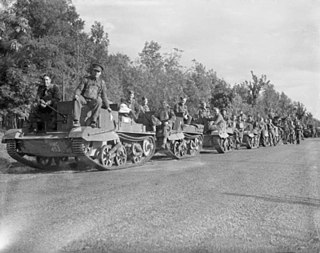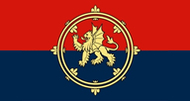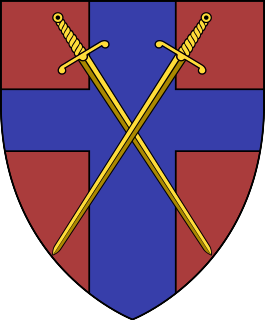 W
WThis is a list of British Army commands and army groups. It is intended as a central point of access information about British formations of that size.Aldershot Command Anti-Aircraft Command Army Headquarters Army Strategic Command (1968–1972) British Army of the Rhine (1945–1994) British Element Trieste Force (BETFOR) British Expeditionary Force British Expeditionary Force British Forces in Austria Cyrenaica Command (1940–1941) East Africa Command (1941–1964) Eastern Command Far East Land Forces Field Army (c.2015-present) Home Command British India Command Land Command (1995–2008) Land Forces (2008–2011) Malaya Command HQ Malta and Libya Middle East Command (1939–1945) Middle East Land Forces, (1945-1976) Near East Land Forces Netherlands East Indies Command (c.1946-1947) Northern Command HQ Northern Ireland Persia and Iraq Command Scottish Command South Eastern Command (1941–1944) Southern Command UK Land Forces (1972–1995) UK Support Command (Germany) West Africa Command (1941–1956) Western Command
 W
WAldershot Command was a Home Command of the British Army.
 W
WAnti-Aircraft Command was a British Army command of the Second World War that controlled the Territorial Army anti-aircraft artillery and searchlight formations and units defending the United Kingdom.
 W
WThe British Expeditionary Force (BEF) was the name of the British Army in Western Europe during the Second World War from 2 September 1939 when the BEF GHQ was formed until 31 May 1940, when GHQ closed down. Military forces in Britain were under Home Forces command. During the 1930s, the British government planned to deter war by rearming from the very low level of readiness of the early 30s and abolished the Ten Year Rule. The bulk of the extra money went to the Royal Navy and the Royal Air Force but plans were made to re-equip a small number of Army and Territorial Army divisions for service overseas.
 W
WThe Desert Column was a First World War British Empire army corps which operated in the Sinai and Palestine Campaign from 22 December 1916. The Column was commanded by Lieutenant General Philip W. Chetwode and formed part of Eastern Force. When Chetwode took command of Eastern Force after the Second Battle of Gaza, Harry Chauvel took command and oversaw the expansion of the column to three divisions.
 W
WEast Africa Command was a Command of the British Army. Until 1947 it was under the direct control of the Army Council and thereafter it became the responsibility of Middle East Command.
 W
WEastern Command was a Command of the British Army.
 W
WThe Egyptian Expeditionary Force (EEF) was a British Empire military formation, formed on 10 March 1916 under the command of General Archibald Murray from the Mediterranean Expeditionary Force and the Force in Egypt (1914–15), at the beginning of the Sinai and Palestine Campaign of the First World War.
 W
WThe Force in Egypt was a British Army formation established in August 1914 to administer garrisoning armed forces in Egypt at the beginning of the First World War. The force had the objective of protecting the Suez Canal and was originally commanded by Major General Julian Byng, but he was replaced by General J. Maxwell, who took command on 8 September 1914. Initially, the main threat to the Suez came from Germany and throughout the early months several of the force's elements were sent to Europe to take part in the fighting on the Western Front. On 5 November 1914, Britain and France declared war on the Ottoman Empire, after which the Force in Egypt faced a direct threat from Ottoman forces, which was realised in February 1915 with a raid on the Suez Canal. This threat remained until 1916 when the British forces went on the offensive.
 W
WForce Troops Command was a combat support and combat service support command of the British Army. Its headquarters was at Upavon, Wiltshire. It was formed in 2013 as a redesignation of the previous Headquarters Theatre Troops. Force Troops Command was renamed as 6th Division in August 2019.
 W
WHQ Northern Ireland was the formation responsible for the British Army in and around Northern Ireland. It was established in 1922 and disbanded, replaced by a brigade-level Army Reserve formation, 38 (Irish) Brigade, in 2009.
 W
WThe Malaya Command was a formation of the British Army formed in the 1920s for the coordination of the defences of British Malaya, which comprised the Straits Settlements, the Federated Malay States and the Unfederated Malay States. It consisted mainly of small garrison forces in Kuala Lumpur, Penang, Taiping, Seremban and Singapore.
 W
WMiddle East Command, later Middle East Land Forces, was a British Army Command established prior to the Second World War in Egypt. Its primary role was to command British land forces and co-ordinate with the relevant naval and air commands to defend British interests in the Middle East and eastern Mediterranean region.
 W
WThe Persia and Iraq Command was a Command of the British Army established during the Second World War in September 1942 in Baghdad. Its primary role was to secure from land and air attack the oilfields and oil installations in Persia and Iraq. Its further role was to ensure the transport of supplies from Persian Gulf ports through Iraq and Persia to the Soviet Union.
 W
WNorthern Command was a Home Command of the British Army from 1793-1889 and 1905–1972.
 W
WRegional Command, formerly Support Command, is a two-star command of the British Army. It is the Army's HQ for the UK, Nepal and Brunei. It delivers Real Life Support to the Army and controls the UK Stations and Garrisons. It is also responsible for engagement with the civilian community and acts as the proponent for UK Operations.
 W
WScottish Command or Army Headquarters Scotland is a command of the British Army.
 W
WSouthern Command was a Command of the British Army.
 W
WRegional Command, formerly Support Command, is a two-star command of the British Army. It is the Army's HQ for the UK, Nepal and Brunei. It delivers Real Life Support to the Army and controls the UK Stations and Garrisons. It is also responsible for engagement with the civilian community and acts as the proponent for UK Operations.
 W
WBritish Forces Germany (BFG) was the generic name for the three services of the British military, made up of service personnel, UK Civil Servants and dependents, based in Germany. It was first established following the Second World War the largest parts of it becoming known as the British Army of the Rhine (BAOR) and RAF Germany (RAFG).
 W
WWest Africa Command was a Command of the British Army.
 W
WWestern Command was a command of the British Army.